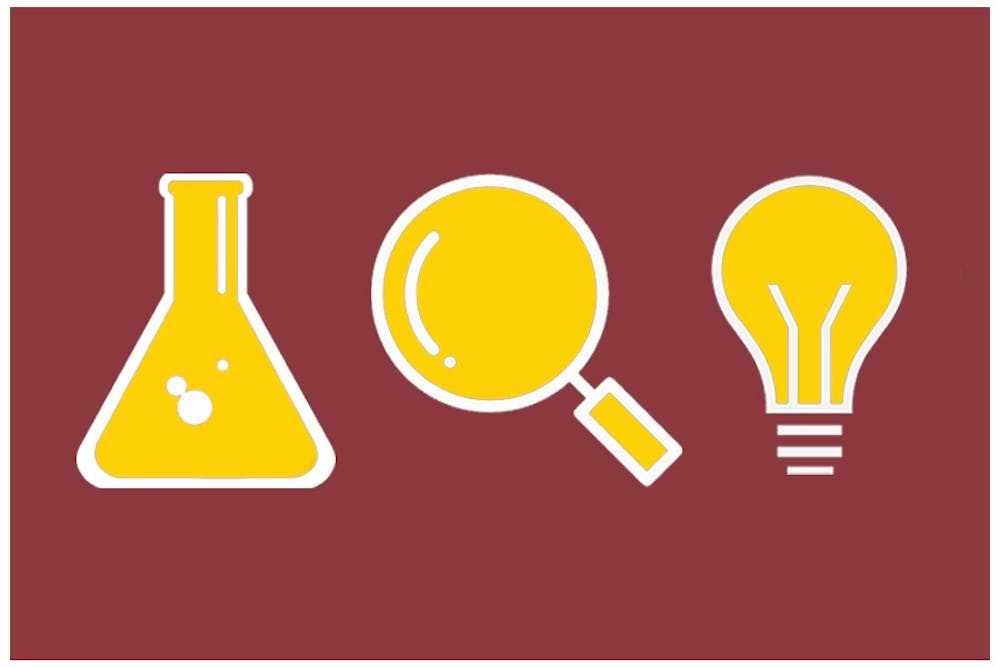This semester in ASU research news
Three ASU researchers contribute to study on the effects of asthma drugs
ASU researchers Wei Liu, Hao Hu and Uwe Weierstall joined scientists from other colleges across the U.S., Canada, France, Russia and Germany to study the molecular effects of two drugs prescribed to treat asthma.
Researchers told ASU Now that they hope their findings make it easier to prevent unwanted side effects among asthma patients, a condition that affects more than 10 percent of the global population.
ASU scientists helped find ancient oasis on Mars
Mars is currently dry, but a discovery by Mars Rover Curiosity scientists, including Travis Gabriel from ASU's School of Earth and Space Exploration, shows that it may not always have been that way.
The scientists believe this is evidence of Mars once having a much wetter and more fertile environment than the one that exists today. Gabriel told ASU Now that the next step is finding out how and why the environment changed so much — an answer that could have a major implication on Earth's own climate change struggle.
More urban agriculture would help feed Phoenix, research says
There are over 1.6 million people in the Phoenix area and providing all of them with enough fruits and vegetables may seem like a daunting task, but a group of researchers led by ASU showed the solution may be simpler than it seems. The key? Growing more gardens in urban spaces. In fact, the study states that if Phoenix uses just 5 percent of its urban space to grow gardens, those would provide 90 percent of the fresh fruits and vegetables its residents consume per year.
Chemical toxins in food can cause breast cancer
Eating right isn't just about cutting down on cookies and cake. Research done by the Biodesign Institute showed that certain chemicals linked to breast cancer called endocrine disruptors can enter our bloodstream through our diet.
These endocrine-disrupting chemicals can be found in many plastics, pesticides and herbicides.
This semester from the science, business and technology desk
Is student anxiety a fair trade for school security?
Many of the safety measures undertaken by schools to prevent mass shootings cause fear and impact students negatively psychologically, according to research.
“The existence of these security features actually relates to more fear among students, so a decreased sense of safety,” said Sarah Lindstrom Johnson, assistant professor with the T. Denny Sanford School of Social and Family Dynamics.
Biodesign Institute wins millions through grant for high-powered compact X-ray machine
ASU's Biodesign Institute received a $4.7 million National Science Foundation grant to continue developing a compact version of a molecular X-ray machine. Researchers say the impact this X-ray could have on the science community is huge.
"Making the (compact) X-ray laser is super exciting because right now they’re a mile long and they cost a billion dollars,” said project leader William Graves. "If we can get that down to fitting in the basement of the building and costing about $10 million, it should have a revolutionary impact on science."
ASU research shows fish from Phoenix's urban ponds and lakes may be unsafe
A team at ASU has conducted research showing that the fish caught in many of urban Phoenix's artificial lakes and ponds may not be safe for consumption.
"We actually found mercury that was above the EPA threshold for safety in the tissue of the fish," said Daniel Lucas, a member of the research team.
Reach the reporters at rvatti@asu.edu and follow @rvatti42 on Twitter.
Like The State Press on Facebook and follow @statepress on Twitter.




